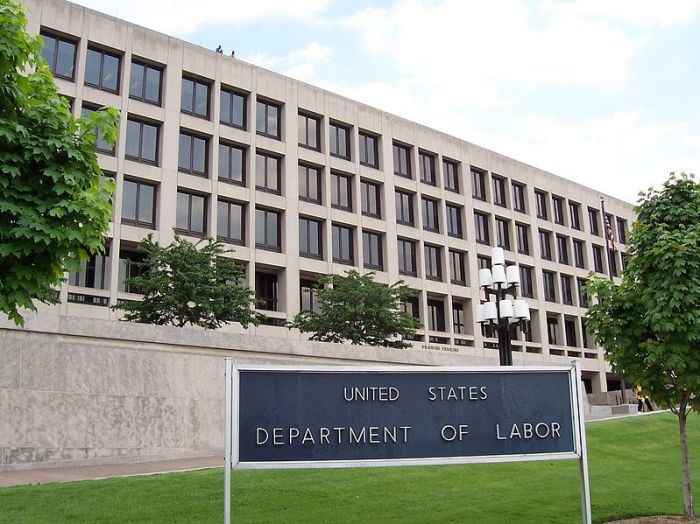Biden admin. to rescind Trump-era religious exemptions for federal contractors

The Biden administration has proposed narrowing the religious exemptions to federal discrimination law given to entities that contract with the federal government, which currently allows them to uphold religious convictions in certain hiring decisions.
The Office of Federal Contract Compliance Programs, a U.S. Department of Labor division, has proposed rescinding a federal contractor rule adopted under President Donald Trump in 2020.
In the proposed rule change, published in the Federal Register Tuesday, the OFCCP argued that the Trump administration rule was too broad compared to previous administrations and ran afoul of discrimination measures governing federal contractors.
The Trump-era rule came in response to an Obama-era directive that added sexual orientation and gender identity to the list of protected employment classes governing federal contracts. Critics feared the Obama-era rule could put faith-based contractors in jeopardy of losing their contracts if their hiring policies don't comply with the federal government's interpretation of LGBT discrimination law.
Religious organizations have contracted with the federal government to provide relief and development services, prison programs, research and even technical assistance for federal departments and other services. Many religious organizations that contract with the federal government have required their staff to agree to statements of faith and conduct themselves in accordance with the organizations' statements of faith.
"The Office of Federal Contract Compliance Programs' proposed rescission would protect against discrimination and safeguard principles of religious freedom," said OFCCP Director Jenny Yang in a statement released Monday. "With this proposal, OFCCP would simply return to our policy and practice of considering the facts of each case and applying Title VII principles and case law and other applicable law."
The proposed rule change asserted that "the test adopted in the 2020 rule permits a contractor whose purpose and/or character is not primarily religious to qualify for the Executive Order 11246 religious exemption."
The agency suggested that "this … undermines the government's long-standing policy of requiring that federal contractors provide equal employment opportunity, subject to a religious exemption for contractors with primarily religious purpose and character."
The OFCCP argued the 2020 rule "retreats from the general principle that qualifying religious employers are prohibited from taking employment actions that amount to discrimination on the basis of protected characteristics other than religion, even if the decisions are made for sincerely held religious reasons."
"In so doing, the 2020 rule disregards the text of Executive Order 11246, undermines the government's interest in ensuring equal employment opportunity by federal contractors, and deviates from Congress's understanding of how the Title VII religious exemption should operate — an understanding courts have confirmed in Title VII cases," claimed the OFCCP.
According to its official synopsis, Executive Order 11246 prohibits federal contractors who do more than $10,000 in government business in a year from discriminating based on race, color, religion, sex, sexual orientation, gender identity or national origin. Then-President Lyndon Johnson signed Executive Order 11246 into law in 1965, and the order has been amended over the years.
In 2002, then-President George W. Bush signed into law Executive Order 13279, which amended EO 11246 to allow religious contractors to "prefer individuals of a particular religion when making employment decisions relevant to the work connected with its activities."
At the same time, EO 13279 maintained that "such contractors and subcontractors are not exempted or excused from complying with the other requirements of Executive Order 11246."
In December of 2020, Trump's OFCCP announced the release of the "Implementing Legal Requirements Regarding the Equal Opportunity Clause's Religious Exemption" final rule.
The rule expanded the religious exemption in EO 11246 to, among other things, clarify that the religious exemption can apply to hiring decisions and allows entities that might not be considered inherently religious in their purposes to be eligible for the exemption.
Then-U.S. Secretary of Labor Eugene Scalia said in the 2020 announcement that the final rule gave "full effect to Executive Order 11246's protection of religious organizations."
"Religious organizations should not have to fear that acceptance of a federal contract or subcontract will require them to abandon their religious character or identity," stated Scalia at the time.





























